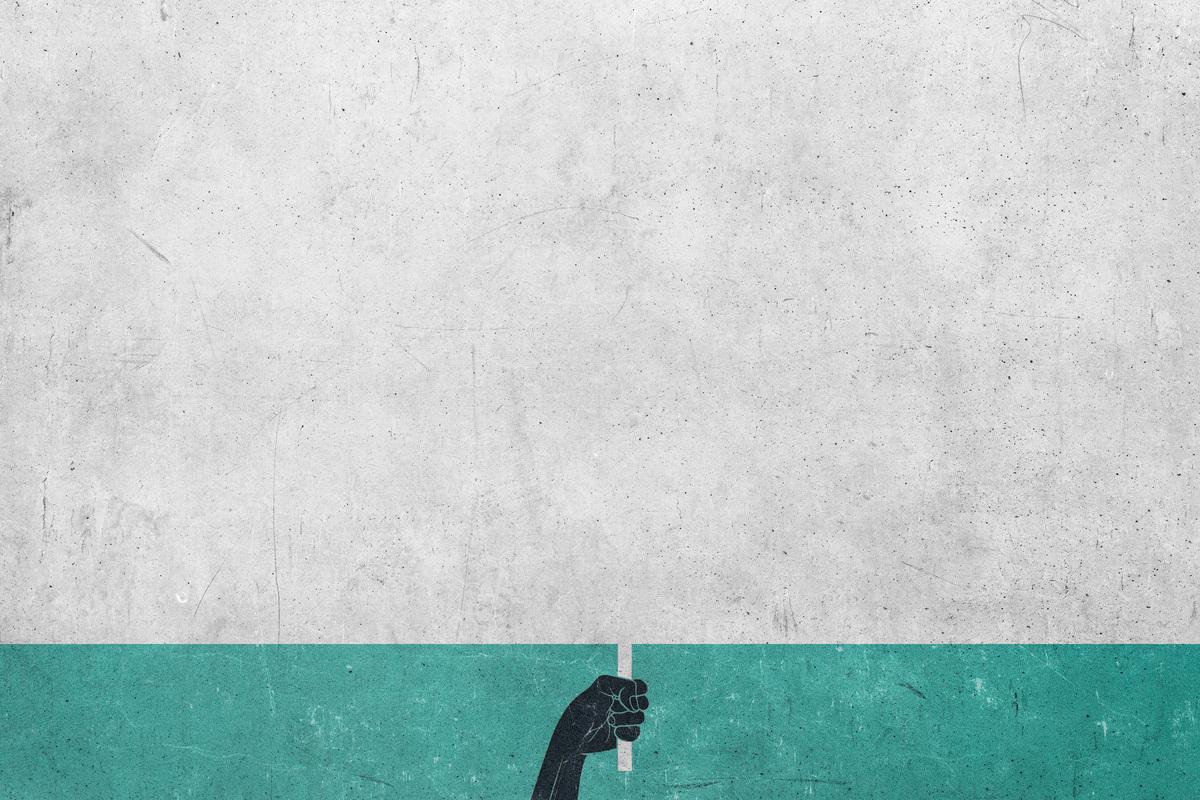America’s Summer of Protest Brings Many Reckonings
Nationwide protests against police brutality seem to be having a transformative impact on race relations in America, one that’s manifesting in the culture in some unexpected ways
In the seven weeks since Derek Chauvin killed George Floyd in Minneapolis, there have been some rapid and disorienting developments in race relations.
NASCAR has banned the Confederate flag from its events. Mississippi scrapped its own state flag, which incorporated the Confederate stars-and-bars standard. The team formerly known as the Washington Redskins have retired their Native American mascot and the Cleveland Indians may well follow suit. Quaker Oats announced plans to scrap the Aunt Jemima logo after spending the past century modernizing the old mammy caricature through redesigns. The Associated Press, The New York Times, Fox News, and this very website will now capitalize “Black” in references to Black people. “We believe this style best conveys elements of shared history and identity, and reflects our goal to be respectful of all the people and communities we cover,” The New York Times announced two weeks ago. “The change will match what many readers are seeing elsewhere.”
There’s reckoning with previous centuries, there’s reckoning with current events, and there’s reckoning with entertainment. Last week, Jenny Slate resigned her role as the voice actor for her character Missy Foreman-Greenwald, a young Black girl on the Netflix cartoon series Big Mouth. Slate, who is white, says she believes, “Black characters on an animated show should be played by Black actors.” Slate announced her resignation on Instagram, writing in white text set against the sort of black square that online brands posted to honor Floyd, Breonna Taylor, and other victims of police brutality in the earliest weeks of nationwide protests. In her somber sign-off, Slate credits Black Lives Matter for her newfound awareness about “the ways that I”—a voice actor for a cartoon character—“am part of the problem.”
By resigning, Slate plays her small part in the political solution encoded in the recent protests. Black Lives Matter has launched the largest civil rights protests in U.S. history. The global scale of these demonstrations has expanded their scope, and so police brutality, the core concern in these protests, is, as always, only the beginning of a broader conversation about race. These causes and concerns predate Floyd’s death, and so does the activism that attends them. For more than half a century, Native Americans offended by the Redskins name have petitioned the team’s ownership. For the past several years, team owner Dan Snyder seemed to delight in playing dumb about the offense taken to “redskins.” He played dumb all throughout the formative years of Black Lives Matter, the movement that inspired Colin Kaepernick’s own career-ending protests in the NFL. Of course, NFL commissioner Roger Goodell has now apologized “for not listening to players earlier and encourag[ing] all to speak out and peacefully protest,” as Kaepernick and many others did. Snyder, the NFL, the investors, and the advertisers—including the team’s chief sponsor, FedEx—aren’t any more or less sensitive to the particular objections to the term “redskins” so much as they’re suddenly sensitive to the sympathies that these activists now command in the body politic.
It’s easy enough to agree with the arguments for racial “reckonings” in these particular cases: Maybe news media should reevaluate its racial descriptors every now and again, maybe sports teams shouldn’t deploy racial caricatures as mascots, etc. But on the whole, it’s been strange to watch such a wide variety of institutions and individuals each crediting Floyd for so many concurrent epiphanies about racial dynamics in Sunday Night Football, stock car racing, and TV cartoons. There is, as my colleague Alison Herman wrote in a recent column about Old Hollywood, an arbitrary quality to these post-Floyd reckonings. Floyd was only the latest in a long series of victims, and the smartphone footage of his death was only the latest in a long stream of viral evidence. It’s often tough to discern what the latest reckonings have got to do with Floyd, exactly. Snyder has defended the “Washington Redskins” for years. Why did Floyd’s death, in particular, overwhelm Snyder and reverse his incentives? On Instagram, Slate said she once believed her character on Big Mouth suited her “because [Missy’s] mom is Jewish and White — as am I.” How does George Floyd complicate her rationale?
The protests are bigger than George Floyd, of course. The activism is about “systemic oppression,” but it’s also about “microaggressions.” It’s about corruption in police departments, but it’s also about “white fragility” in the most mundane race relations. It’s about Black victims, but it’s also about “BIPOC,” meaning “Black, Indigenous, and people of color,” a term that has flourished in the post-Floyd discourse. The protests seem to be transforming race relations in general. A decisive majority of respondents in most surveys support the protests. Now a critical mass regards racial discrimination as “a big problem” in the U.S. The popular consensus in favor of the protesters hasn’t (yet) overwhelmed their political opponents in government so much as it has widened and flattened the consensus in favor of various “reckonings” in journalism and entertainment. The consensus in favor of the recent protests now amounts to a general “reckoning” with racism in so many different measures and directions, and thus the reckoning has gotten so broad, hyperactive, and arbitrary in its intermediate achievements.
Beyond George Floyd, Black Lives Matter and its newest, grudging allies confront a common challenge: how to make the most of these protests. They’ve expanded the formative concern (about police brutality against black people) to include other groups, such as Latinos; other offenses, such as colonialism and slavery; other goals, such as reparations; other contexts, such as Hollywood. A vast and profound solidarity has emerged in some important ways. There is also a distressingly American reconciliation in the aforementioned examples: answering a massive referendum on state violence with tangential concessions, nervously rendered, from random figureheads in news media and entertainment. The survey results and the grassroots turnout billed as the new, breathtaking “consensus” can seem so fractured; the “reckoning” in popular culture can seem so trivial. A week after Floyd’s death, I wrote about the risk of squandering the new consensus in favor of reimagining, if not abolishing, the police. I supposed that politicians at every level would stall the protests, which would inevitably shrink and then pale in comparison to concerns about the coronavirus, the presidential election, etc. But, in the seventh year of Black Lives Matter, the consensus persists into semipermanence. It may well revolutionize race relations. The consensus hasn’t dissipated but rather spiraled into wider aims and weirder digressions, some long overdue, some so far afield from the central campaign to abolish the police.
In the earliest weeks of the protests, Donald Trump struggled to co-opt the primary reckoning with the nation’s police departments. The discourse about George Floyd’s death and Derek Chauvin’s responsibility, and even the panic about left-wing riots, proved too urgent, too sincere, and too magnanimous to accommodate Trump’s offbeat law-and-order theatrics in Washington, D.C.’s Lafayette Square. But in the past couple of weeks, he’s recovered his culture war confidence, in part by turning his attention from Floyd to the secondary reckonings about monuments and showbiz. He’s on the losing side in these reckonings, and yet they seem to be the sort of reckonings he’d rather his critics prioritize. Trump rants about NASCAR banning the Confederate flag and sports teams retiring Native American caricatures. He trivializes the primary aim of the protests. So, too, do the celebs. So, too, do the Washington Whatever-Ya-Call-Them.

